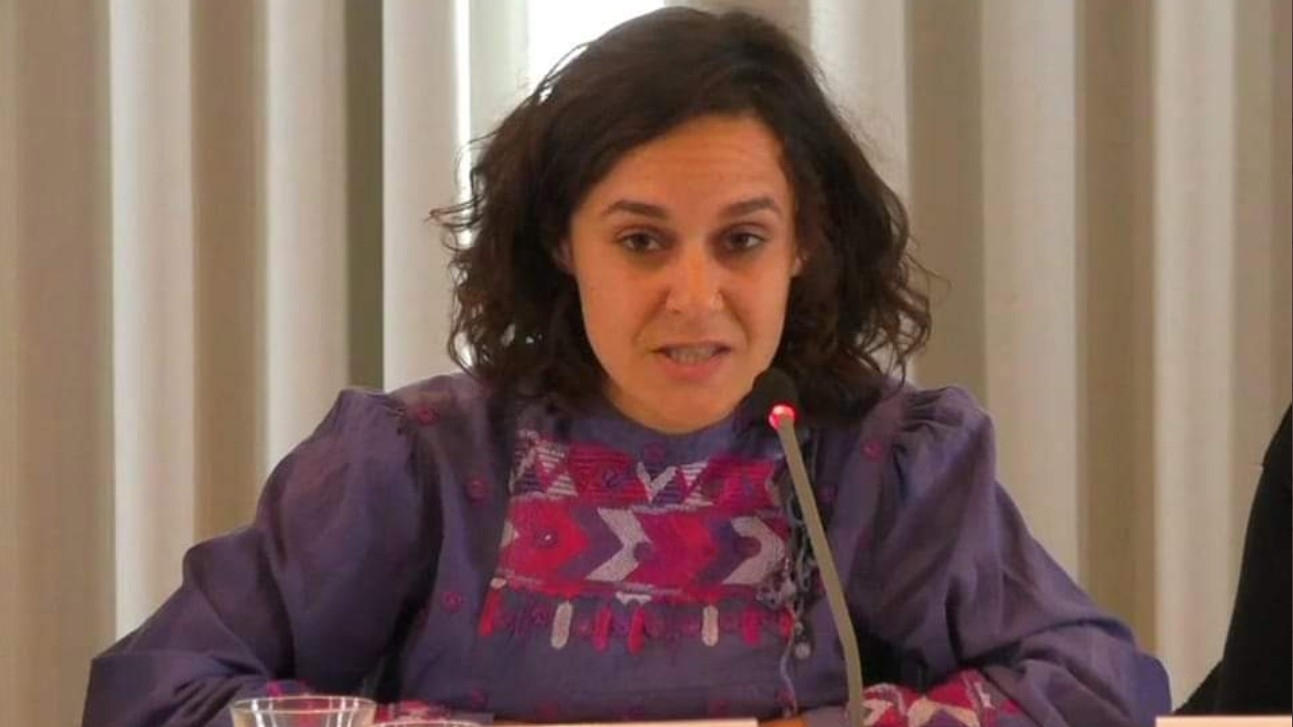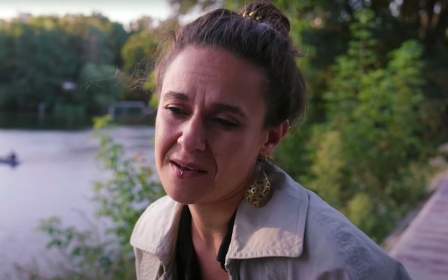German authority says dossier compiled on German-Palestinian smear target was lawful

State-funded organisations acted lawfully when they compiled and shared a dossier about a German-Palestinian academic with a political party that disinvited her from speaking at an event, Berlin's Data Protection Authority (DPA) has ruled.
RIAS Berlin, an antisemitism research centre, and MBR, an organisation monitoring far-right extremism, had "a legitimate interest in collecting and passing on information from public sources if this is done in pursuit of its own political goals" or to influence people as part of their work, DPA wrote in a ruling seen by MEE, but not yet made public.
'We deeply disagree with the DPA that RIAS/MBR’s preparation and transmission of the dossier was legitimate'
- Giovanni Fassina, European Legal Support Center
That stated purpose, RIAS Berlin and MBR's parent organisation told the DPA last month, was to identify the positions of Anna-Esther Younes, the disinvited academic and scholar of critical race theory, on Israel and the Boycott, Divestment, and Sanctions (BDS) movement.
Giovanni Fassina, director of the European Legal Support Center (ELSC), which is assisting Younes with her legal action, said the ruling will be concerning for all Palestinians in Germany and they plan to appeal.
"We deeply disagree with the DPA that RIAS/MBR’s preparation and transmission of the dossier was legitimate, as this resulted in significant damage to Dr Younes’ professional and personal reputation and sends a clear message to all Palestinians in Germany," Fassina said in a statement.
Stay informed with MEE's newsletters
Sign up to get the latest alerts, insights and analysis, starting with Turkey Unpacked
The DPA's decision comes at a time when Palestinian supporters in Germany - and those invited to the country - face increasing challenges to speak publicly, particularly since the Bundestag's 2019 passage of an anti-BDS resolution which deemed the movement as antisemitic.
Earlier this month, the state-run Goethe Institute disinvited Palestinian poet and human rights activist Mohammed el-Kurd from speaking at a conference on far-right movements scheduled to be held in Hamburg.
Younes, who has faced repeated smear campaigns, has spent the past two years trying to obtain a copy of the dossier that she and her lawyers say painted her as antisemitic and a terrorist sympathiser, and the compilation of which, they argue, amounted to surveillance.
She had been scheduled to speak in November 2019 on a panel in Berlin focused on strategies against far-right extremism, organised by Die Linke, Germany's leftist political party. But after the two-page dossier was shared with Katina Schubert, head of Die Linke in Berlin, she was told her involvement was no longer welcome.
As part of its ruling, the DPA upheld Younes' right to access her own data, finding that the organisations were not covered by exemptions for journalism or scientific work that would have allowed them to refuse to give her a copy of the dossier as they had for the past two years.
As a result, the DPA issued a warning to the Society for a Democratic Culture in Berlin (VDK), the umbrella organisation overseeing RIAS and MBR.
Fassina said: “It is a relief that the DPA held RIAS/MBR accountable, whose conduct amounts to surveillance. We welcome the DPA's decision that RIAS/MBR cannot legitimate their conduct on pretences of journalism or ostensible scientific activity."
Last month, a German court ordered VDK to release any data it had collected about her, a ruling in a civil suit her lawyers say they filed earlier this year after waiting nearly two years without a ruling from DPA.
Middle East Eye delivers independent and unrivalled coverage and analysis of the Middle East, North Africa and beyond. To learn more about republishing this content and the associated fees, please fill out this form. More about MEE can be found here.




